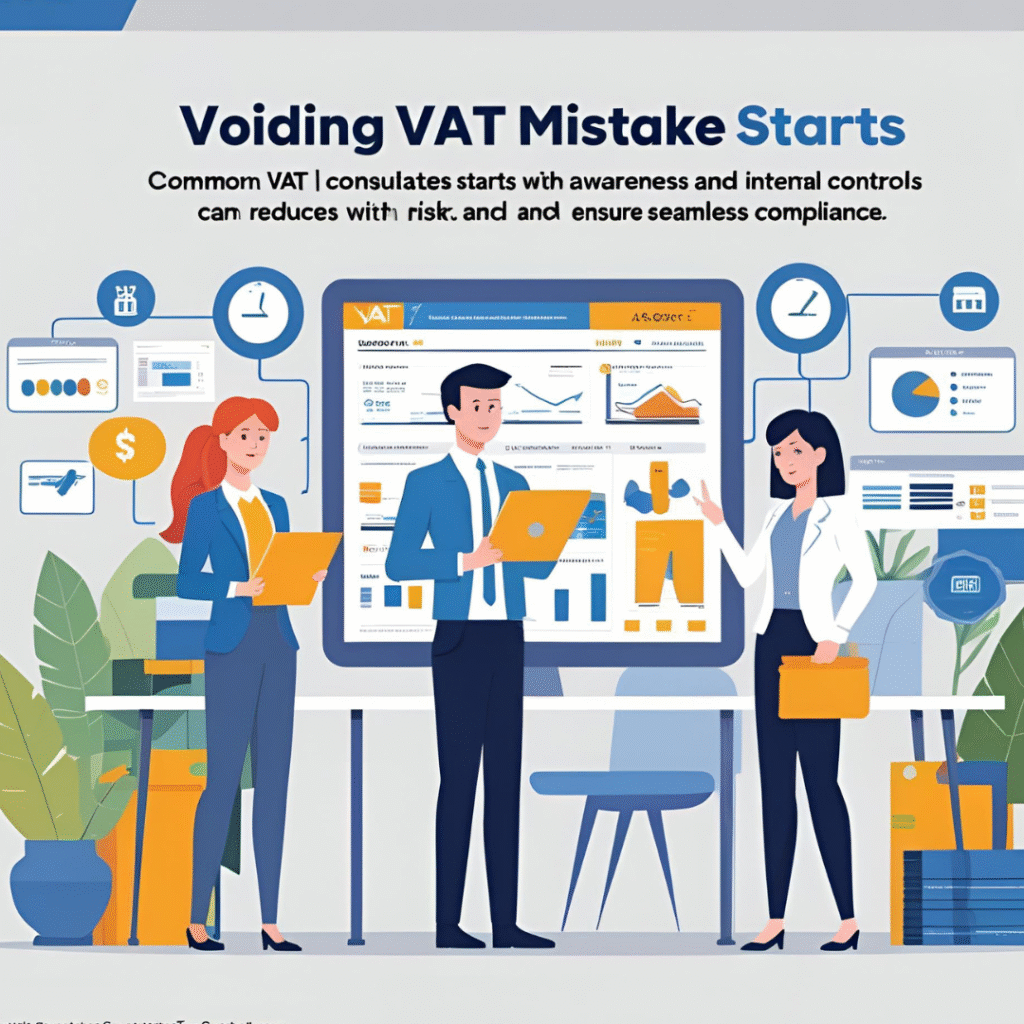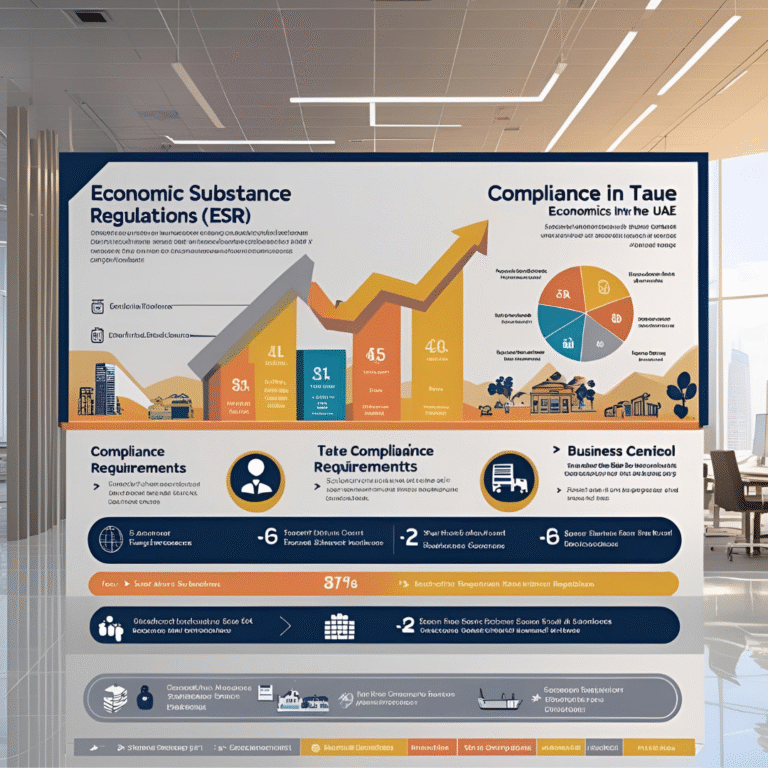10 Common VAT Filing Mistakes UAE Businesses Should Avoid

Introduction Filing VAT returns in the UAE can be a routine task — until it’s not. Many businesses unintentionally make mistakes that can lead to financial penalties, audit risks, or compliance issues with the Federal Tax Authority (FTA). Whether you’re a startup or an established company, understanding these common pitfalls can save you time, money, and stress.
Here are the top 10 VAT filing mistakes UAE businesses must avoid in 2025 and beyond.
1. Incorrect Tax Invoice Format A valid tax invoice must include key fields such as the supplier’s TRN, tax amount, invoice date, and VAT breakdown. Missing any of these can invalidate your input VAT claim.
Tip: Always follow the FTA’s prescribed format and ensure simplified invoices are used only where allowed (i.e. for amounts ≤ AED 10,000).
2. Late VAT Return Submission Missing the VAT filing deadline (usually by the 28th of the month following the tax period) results in automatic late penalties.
Tip: Set calendar reminders and automate submission through accounting software.
3. Misreporting Sales or Purchases Incorrect classification of sales, zero-rated supplies, or reverse charge mechanisms can distort your return and trigger red flags during audits.
Tip: Separate standard-rated, zero-rated, exempt, and out-of-scope transactions correctly.
4. Ignoring Reverse Charge Mechanism (RCM) Importing services or goods without properly applying RCM means the VAT liability goes unreported — a serious offense.
Tip: Always check if you’re receiving services from outside the UAE, and apply RCM accordingly.
5. Claiming VAT on Ineligible Expenses Not all expenses are VAT-recoverable — for example, entertainment, personal expenses, and some staff benefits.
Tip: Review FTA guidelines to know which expenses are claimable.
6. Overclaiming Input VAT If your purchases are partially for exempt or non-business purposes, you must apportion the input VAT.
Tip: Use the correct input VAT apportionment method and retain all supporting documents.
7. Not Reconciling VAT Returns with Accounting Records Discrepancies between accounting books and VAT returns can signal poor controls and increase the risk of audits.
Tip: Perform monthly reconciliations and keep a VAT audit file ready.
8. Forgetting Voluntary Disclosure for Errors Businesses often overlook the option to file a Voluntary Disclosure to correct errors. Leaving mistakes unreported can lead to hefty fines.
Tip: File Form 211 as soon as you detect material errors in submitted returns.
9. Failing to Archive Tax Records FTA requires businesses to maintain tax records for a minimum of 5 years. Many companies fall short on document retention.
Tip: Store records digitally and ensure backups are maintained.
10. Relying on Untrained Staff or Outdated Software VAT compliance is technical — and errors made due to lack of training or software limitations can be costly.
Tip: Invest in staff training and cloud-based VAT software aligned with FTA requirements.
Conclusion Avoiding these common VAT mistakes starts with awareness and internal controls. Regular training, automation, and working with experienced tax consultants can reduce risks and ensure seamless compliance.
Bonus Tip: As VAT regulations continue to evolve in the UAE, staying proactive is key. Regularly reviewing FTA updates, subscribing to tax alerts, and participating in compliance workshops can give your business an edge. It’s not just about avoiding mistakes — it’s about building a sustainable compliance strategy that supports your long-term growth. Even a single overlooked entry or missed deadline can trigger penalties, so treat VAT compliance as a core business function, not an afterthought. Whether you manage VAT in-house or through a consultant, make accuracy, timeliness, and documentation your top priorities. Staying up to date with sector-specific guidelines and consulting experts before major transactions — such as mergers, exports, or restructuring — can also help you avoid costly oversights and secure FTA approval more efficiently.
Need help reviewing your VAT compliance process? Our team at FinancialConsultants.ae can audit, correct, and optimize your VAT filings to keep you penalty-free.


